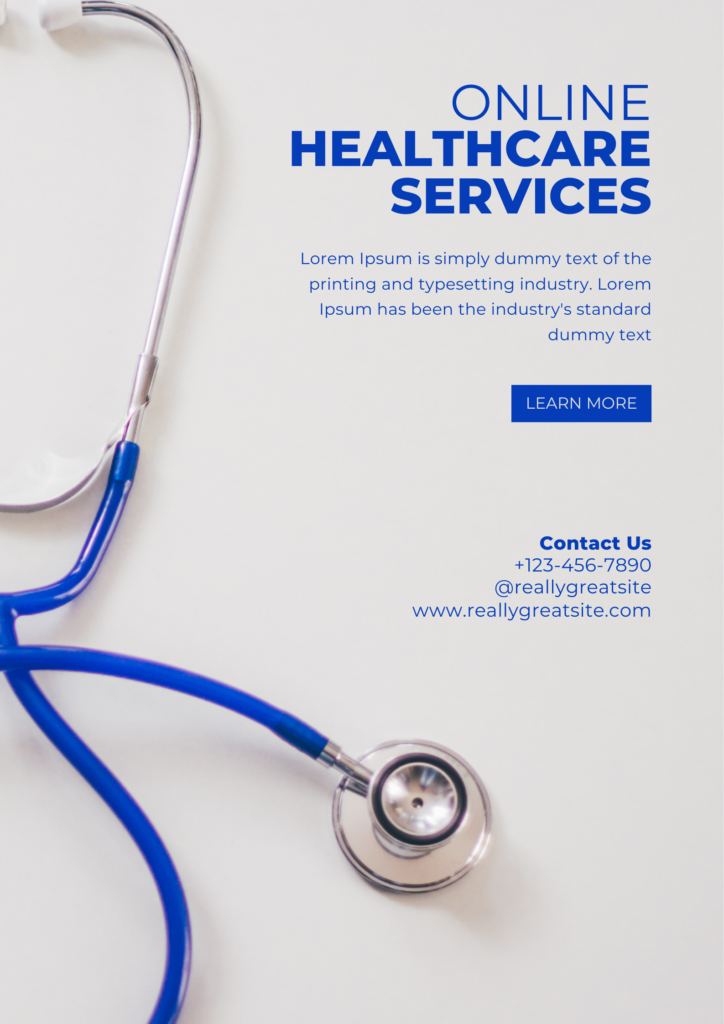Why website design is crucial for medical practitioners? In the digital age, having a website is no longer just a luxury but a necessity. As technology continues to reshape the way we access information and services, a website plays a crucial role in providing patients with essential resources and support. In this article, we’ll explore the necessity of healthcare websites in Australia, highlighting their advantages, features, and the benefits they offer to both patients and healthcare providers.
Understanding the Importance of Healthcare Website
Healthcare websites serve as invaluable platforms for disseminating information, connecting patients with healthcare providers, and facilitating access to essential services. In a country like Australia, where access to quality healthcare is a top priority, these websites play a pivotal role in ensuring that individuals can easily find the care they need when they need it.
Advantages of Healthcare Website
One of the primary advantages of this type of websites is their ability to provide individuals with convenient access to a wealth of health-related information. From educational resources to information about specific medical conditions and treatment options, these websites empower patients to take control of their health and make informed decisions about their care.
Responsive Web Design for Healthcare Website
Responsive web design is another crucial aspect of any websites, ensuring that they are accessible across all devices, including smartphones, tablets, and desktop computers. This accessibility is essential for reaching a diverse audience and ensuring that individuals can access the information and services they need, regardless of their preferred device.
Cost-Effectiveness of Healthcare Website
Unlike traditional forms of healthcare marketing and outreach, such as print advertisements or television commercials, websites offer a cost-effective solution for reaching and engaging with patients. By investing in a well-designed website, healthcare providers can effectively promote their services, attract new patients, and build long-term relationships with their community.
Features of Healthcare Website
Modern healthcare websites are equipped with a range of features designed to enhance the user experience and provide valuable resources to patients. These may include appointment scheduling tools, patient portals for accessing medical records, online payment options, and interactive health assessments.

Importance of Clinical Trials
Healthcare websites also play a vital role in promoting and facilitating participation in clinical trials. Clinical trials are essential for advancing medical research and developing new treatments and therapies for various health conditions. By providing information about ongoing clinical trials and eligibility criteria, these websites enable individuals to contribute to medical science and potentially access cutting-edge treatments.
Providing Access to Information
One of the most significant benefits of healthcare websites is their ability to provide individuals with access to reliable, up-to-date information about their health and well-being. Whether it’s information about preventive care measures, symptoms of a particular condition, or tips for managing chronic illnesses, healthcare websites serve as valuable resources for patients seeking guidance and support.
Building Trust and Credibility
Finally,
Healthcare websites serve as vital touchpoints in the modern healthcare landscape, wielding significant influence in shaping perceptions, fostering trust, and nurturing relationships between patients and healthcare providers. In an era dominated by digital connectivity, a well-crafted website stands as more than just an online presence—it becomes a cornerstone in establishing credibility, delivering accurate information, and enhancing the overall patient experience.
A meticulously designed healthcare websites go beyond mere aesthetics; it serves as a beacon of reliability, offering patients a gateway to dependable information and services. By providing easily accessible resources such as medical articles, treatment options, and educational materials, these platforms empower individuals to make informed decisions about their health and well-being. Moreover, in an age where misinformation proliferates, a trustworthy online source becomes invaluable in dispelling myths and guiding patients towards evidence-based practices.
Beyond disseminating information, healthcare websites serve as dynamic platforms for communication and engagement. Features such as secure messaging systems, appointment scheduling tools, and telemedicine services facilitate seamless interaction between patients and providers, fostering a sense of accessibility and convenience. By embracing technological advancements, healthcare websites adapt to the evolving needs of patients, catering to diverse preferences and enhancing the overall healthcare experience.
In conclusion, the necessity of healthcare websites in Australia cannot be overstated. From providing access to essential health information to facilitating communication between patients and providers, these websites play a crucial role in improving healthcare access and outcomes. By embracing responsive web design, cost-effective solutions, and innovative features, healthcare websites empower individuals to take control of their health and well-being like never before.



